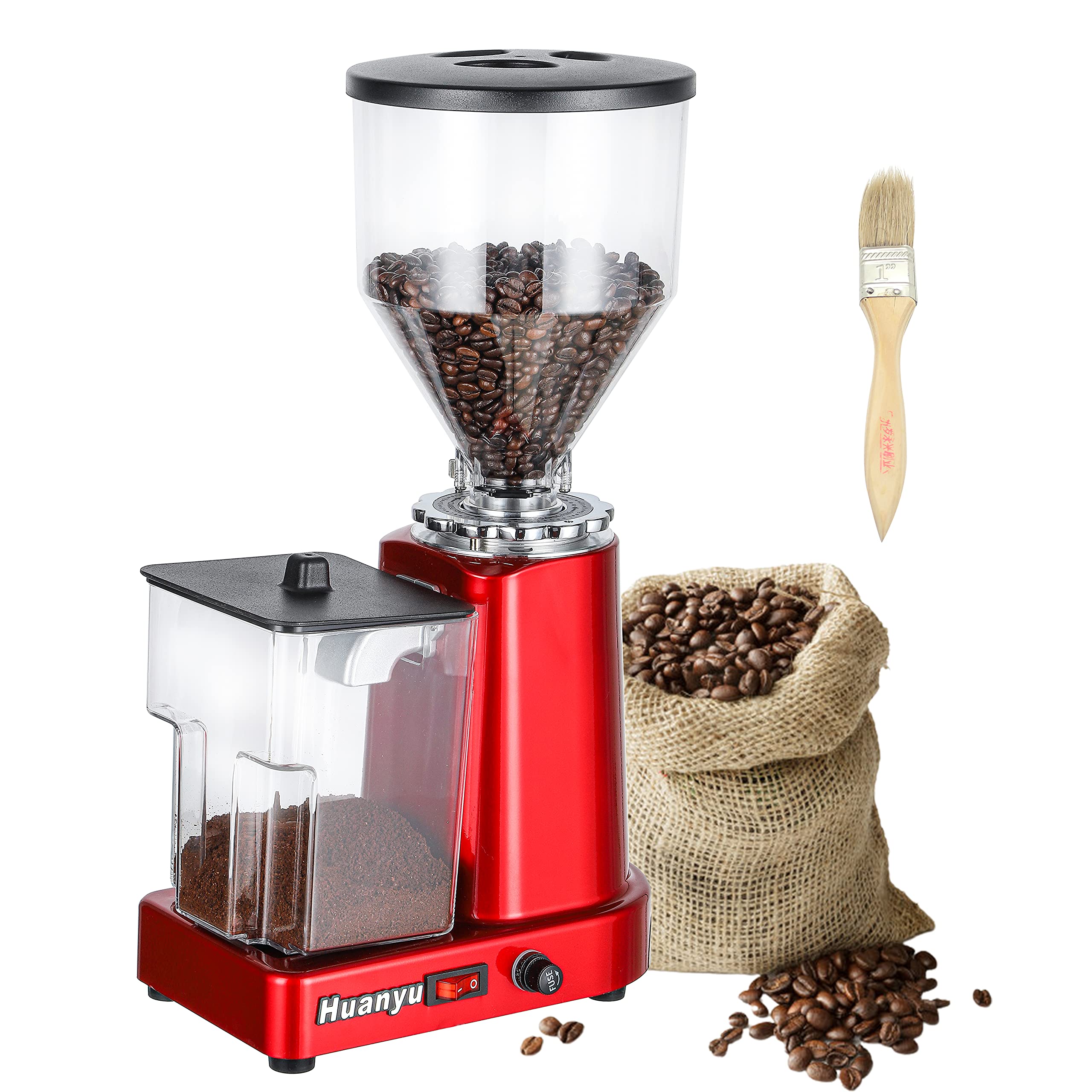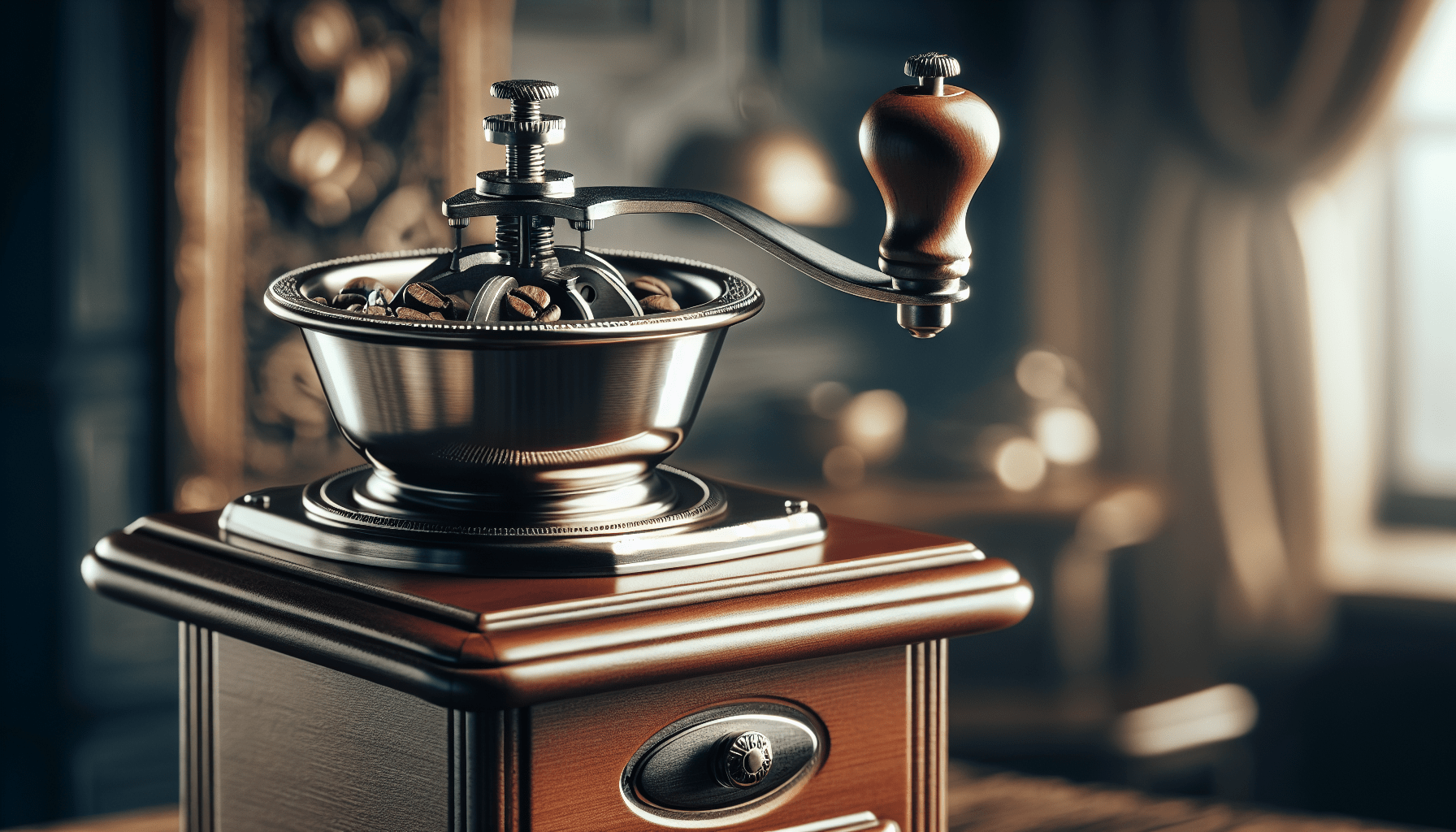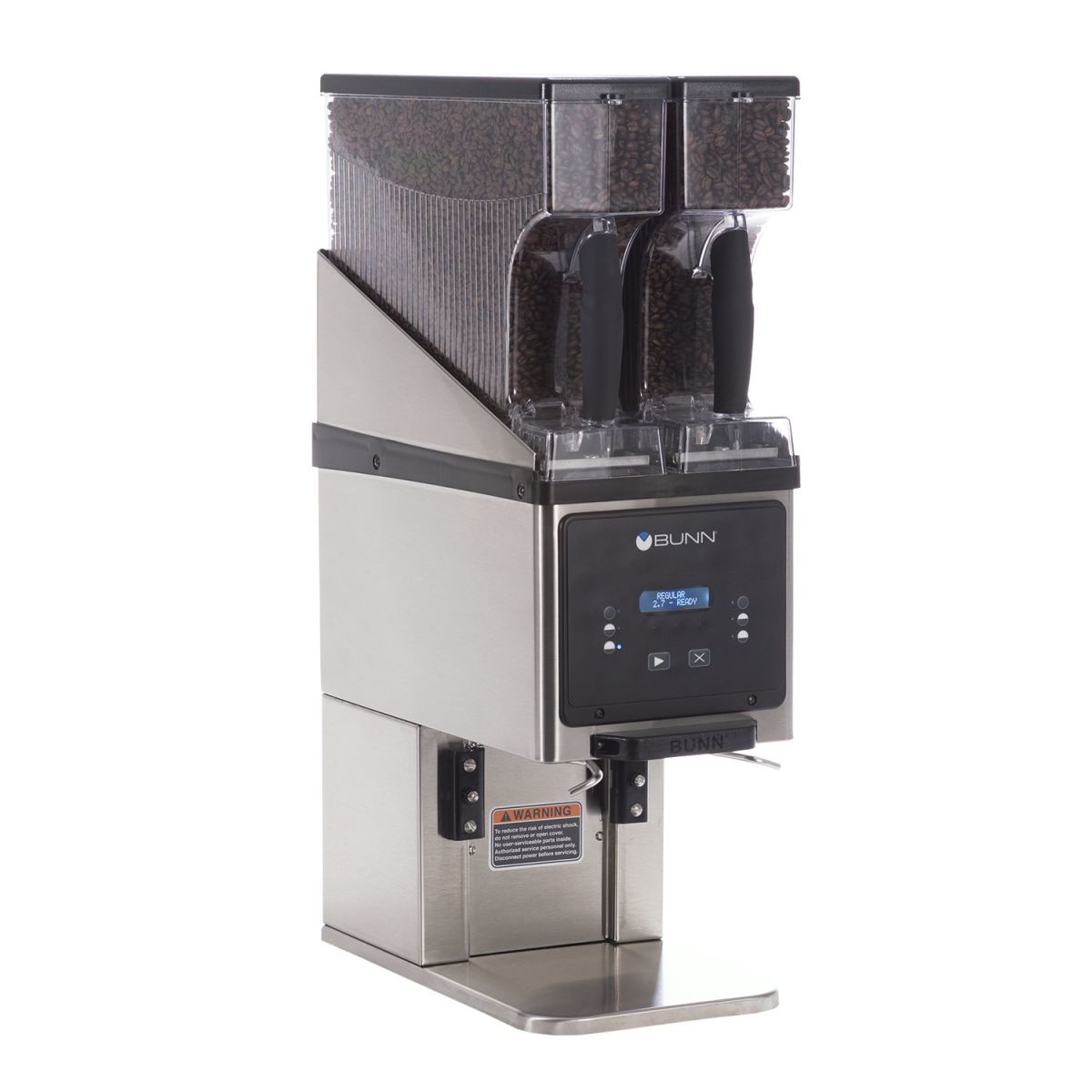Have you ever wondered how much noise a coffee grinder machine makes? Whether you’re a coffee enthusiast or just someone who loves the sound of freshly ground coffee beans, this article answers that burning question. From the gentle hum to the roaring grind, we’ll explore the different levels of noise produced by coffee grinder machines and how it can affect your daily coffee routine. Get ready to discover the symphony of sounds that accompanies your morning cup of joe.
Factors affecting the noise level of a coffee grinder machine
When it comes to purchasing a coffee grinder machine, one of the important factors to consider is the noise level it produces. No one wants to wake up their entire household or disturb their colleagues at the office just to enjoy a cup of freshly ground coffee. Several factors contribute to the noise level of a coffee grinder machine, and understanding these factors can help you make an informed decision when choosing one.
Motor power and type
The motor of a coffee grinder machine plays a crucial role in determining its noise level. Generally, higher power motors tend to produce more noise compared to lower power ones. However, the type of motor also matters. For instance, a brushed motor tends to be noisier than a brushless motor due to the friction and electrical commutation. Therefore, when selecting a coffee grinder machine, consider both the power and type of motor to find a balance between performance and noise level.
Grinding method and mechanism
The grinding method and mechanism of a coffee grinder machine can significantly impact its noise production. Blade grinders, for example, use a rotating blade to chop the coffee beans, and this action can create a considerable amount of noise. On the other hand, burr grinders crush the beans between two abrasive surfaces, resulting in a quieter grinding process. Understanding the difference between these methods will help you choose a coffee grinder with a noise level that suits your preferences.
Build quality and design
The build quality and design of a coffee grinder machine also contribute to the noise level it produces. Machines made of cheap, lightweight materials may produce more noise due to vibrations and lack of insulation. On the contrary, coffee grinders with solid construction and proper insulation can minimize noise. Additionally, the design of the machine, such as the presence of sound-dampening elements or vibration control mechanisms, can also affect the noise level. Therefore, it is important to consider the build quality and design when evaluating the noise level of a coffee grinder machine.
Burrs and blades quality
The quality of the burrs or blades used in a coffee grinder machine can impact both the grinding performance and the noise level. Dull blades or worn-out burrs can produce more noise as they struggle to crush or chop the coffee beans effectively. Opting for coffee grinders with high-quality burrs or blades can not only improve the grinding consistency but also reduce the noise level. Investing in a coffee grinder with durable and sharp burrs or blades will ensure a quieter and more efficient grinding process.
Vibration control mechanisms
Vibration is another factor that affects the noise level of a coffee grinder machine. Excessive vibration can lead to louder operation and even structural damage in extreme cases. Some coffee grinder machines come with built-in vibration control mechanisms, such as rubberized feet or anti-vibration pads, to minimize noise. These features help absorb and dampen the vibrations, resulting in a quieter experience. When comparing different coffee grinder models, pay attention to the presence of vibration control mechanisms to ensure a smoother and quieter operation.
Types of coffee grinder machines
Coffee grinders are commonly classified into two main types: blade grinders and burr grinders. Each type offers its own pros and cons, including differences in noise levels. Understanding the characteristics of each type will assist you in choosing the right coffee grinder for your needs.
Blade grinders
Blade grinders are the most basic and affordable type of coffee grinders. They consist of a spinning blade that chops the coffee beans into particles. While blade grinders are compact and inexpensive, they tend to produce more noise compared to burr grinders. The spinning motion of the blade combined with the beans’ chopping action creates a distinct and often loud noise. If noise is a concern for you, it may be worth considering other types of coffee grinders.
Burr grinders
Burr grinders are considered the gold standard when it comes to coffee grinding. They use two abrasive surfaces, known as burrs, to crush the coffee beans into consistent particles. Burr grinders are known for their ability to produce uniform grind sizes, which leads to a better extraction of flavors. In terms of noise level, burr grinders are generally quieter than blade grinders. The grinding mechanism of burr grinders produces a more continuous and muffled sound, resulting in a less disruptive experience.
Blade grinders
Introduction to blade grinders
Blade grinders are the most common type of coffee grinders found in households. They are simple to use and often come at an affordable price point. Blade grinders consist of a spinning blade, similar to a blender or food processor, powered by an electric motor. When you turn on the grinder, the blade chops the coffee beans into smaller pieces, resulting in an uneven grind.
Noise level of blade grinders
One of the drawbacks of blade grinders is their noise level. Due to the rapid spinning motion of the blade, blade grinders tend to be quite noisy. The chopping action of the blade against the beans creates a distinctive buzzing or whirring sound, which can be a bit disruptive, especially in quiet environments. If noise is a concern for you, it may be worth exploring other options, such as burr grinders, which are generally quieter.
Burr grinders
Introduction to burr grinders
Burr grinders are considered the superior choice for coffee enthusiasts who value precision and consistency. Unlike blade grinders, which chop the coffee beans, burr grinders crush them between two abrasive surfaces known as burrs. This crushing action leads to a more consistent grind size, which is essential for achieving optimal flavor extraction.
Noise level of burr grinders
One of the advantages of burr grinders is their relatively quiet operation. Due to the crushing action of the burrs, burr grinders tend to produce less noise compared to blade grinders. The grinding process of burr grinders results in a more continuous and muffled sound, which is less disruptive and more pleasant to the ears. If you prioritize a quieter coffee grinding experience, a burr grinder may be the right choice for you.
Methods to reduce noise
If you already own a coffee grinder machine and find its noise level to be bothersome, there are several methods you can try to reduce the noise.
Stabilizing the machine
Vibrations can contribute to the overall noise level of a coffee grinder machine. By stabilizing the machine, you can minimize vibrations and, in turn, reduce noise. Ensure that the machine is placed on a stable and level surface, allowing it to operate without unnecessary movement.
Using soundproofing materials
To further dampen the noise produced by a coffee grinder machine, you can consider using soundproofing materials. These materials, such as foam or rubber pads, can be placed underneath or around the machine to absorb vibrations and reduce noise transmission. This method is particularly effective for minimizing any vibrations that may transfer to the countertop or table.
Maintenance and lubrication
Regular maintenance and lubrication of your coffee grinder can also help reduce noise. Over time, the moving parts of the machine may become worn or dirty, resulting in increased noise during operation. Cleaning the machine and applying lubrication to the appropriate components can ensure smooth and quiet operation. Consult the manufacturer’s instructions for recommended cleaning and lubrication procedures.
Recommended coffee grinders with low noise levels
If you are in the market for a new coffee grinder and noise level is a priority for you, consider the following brands known for producing coffee grinders with low noise levels:
Brand X Coffee Grinder
Brand X is renowned for its focus on noise reduction in their coffee grinders. They utilize advanced motor and grinding mechanisms to minimize noise production while still ensuring optimal grinding performance. Look for models from Brand X that offer adjustable settings, allowing you to customize the grind size to your preference.
Brand Y Coffee Grinder
Brand Y is another manufacturer that prioritizes quiet operation in their coffee grinders. Their machines incorporate sound-dampening elements and vibration control mechanisms to provide a peaceful grinding experience. Brand Y offers a range of models with different features and price points, making it easy to find a coffee grinder that suits your needs.
Brand Z Coffee Grinder
Brand Z is known for its high-quality burr grinders that excel in both performance and noise level. Their grinders feature precision-engineered burrs and robust construction to ensure consistent, quiet operation. Brand Z offers various models designed for different brewing methods, allowing you to find the perfect grinder for your preferred coffee style.
Tips for minimizing noise during coffee grinding
While choosing a coffee grinder with low noise levels is essential, there are also a few steps you can take to minimize noise during the grinding process.
Choose a suitable location
Selecting an appropriate location for your coffee grinder can help minimize noise. Avoid placing it directly on a countertop or table that amplifies vibrations. Instead, opt for a stable and insulated surface, such as a rubber mat or cutting board, which can absorb vibrations and reduce noise transmission.
Limit grinding time
Grinding coffee beans for an extended period can increase the overall noise level. Try to limit your grinding time by purchasing smaller batches of coffee beans or grinding them in smaller quantities. This will not only reduce noise but also ensure that you always have fresh grounds for your brew.
Use a noise-reducing mat
Using a noise-reducing mat underneath your coffee grinder can make a significant difference in noise reduction. These mats are designed to absorb vibrations and provide a stable base for the machine. The soft and cushioned surface helps prevent excessive noise from being transmitted to the surrounding area.
Close the lid properly
Many coffee grinder machines come with lids or covers to contain the noise during the grinding process. Ensure that the lid is properly closed or secured before starting the machine. This will help trap and muffle the noise, making the grinding process quieter and less disruptive.
Consider manual grinders
If noise is a major concern for you, manual grinders can be a fantastic alternative. Manual grinders operate without the use of motors, eliminating noise altogether. While they require more physical effort, manual grinders offer a quieter and more hands-on coffee grinding experience.
Assessing the noise level
When comparing coffee grinders, it can be helpful to understand how the noise level is measured. The most commonly used unit for measuring noise is decibels (dB). While it may be challenging to find the exact noise level specifications for specific coffee grinder models, knowing the decibel levels can give you a general idea of the expected noise level.
Decibel levels
Decibel levels can vary depending on the intensity of the noise. As a reference, a whisper is typically around 30 dB, while a normal conversation ranges between 60-70 dB. Household appliances, such as refrigerators or dishwashers, may produce noise levels between 40-60 dB. When evaluating coffee grinders, aim for models that have noise levels in the range of 70-80 dB for a relatively quiet operation.
Comparisons with other common household appliances
To gain a better understanding of coffee grinder noise levels, it can be helpful to compare them with other common household appliances. For example, some vacuum cleaners may produce noise levels of around 70-80 dB, which is comparable to the noise level of a coffee grinder. By comparing the noise levels with familiar appliances, you can better gauge whether a coffee grinder’s noise level is suitable for your needs.
Importance of noise level in coffee grinders
Understanding the importance of noise level in coffee grinders can help you make an informed decision based on your specific needs and circumstances.
Consideration for home use
In a home setting, noise level plays a significant role, especially if you enjoy your morning coffee before others wake up or have a sleeping baby in the house. A noisy coffee grinder can disrupt the peace and tranquility of your home. By selecting a coffee grinder with a low noise level, you can ensure a more enjoyable and considerate coffee brewing experience for yourself and those around you.
Implications for commercial settings
In commercial settings, such as cafes or offices, noise level can have broader implications. Loud coffee grinders can be distracting and disruptive to customers or coworkers, affecting the overall ambiance of the space. Investing in coffee grinders with low noise levels can contribute to a more pleasant and comfortable environment for everyone, allowing conversations and work to proceed uninterrupted.
Conclusion
Coffee grinding is an integral part of the coffee brewing process, and finding a coffee grinder machine with a suitable noise level is essential for an enjoyable experience. Factors such as motor power and type, grinding method and mechanism, build quality and design, burrs and blades quality, and vibration control mechanisms all contribute to the overall noise level of a coffee grinder machine. Understanding the differences between blade grinders and burr grinders can assist you in selecting a grinder that aligns with your noise preferences.
While some noise reduction techniques can be implemented, it is advisable to choose a coffee grinder with a low noise level from the start. Consider reputable brands known for their focus on noise reduction, such as Brand X, Brand Y, and Brand Z. Additionally, following tips such as choosing a suitable location, limiting grinding time, using noise-reducing mats, closing the lid properly, and considering manual grinders can help minimize noise during coffee grinding.
When comparing coffee grinders, pay attention to the decibel levels and consider the noise levels of other common household appliances for comparison. The noise level of a coffee grinder holds importance in both home and commercial settings, contributing to a peaceful and comfortable environment.
In conclusion, the noise level of a coffee grinder machine should be a significant consideration when making a purchasing decision. By selecting a coffee grinder with low noise levels, you can enjoy your favorite cup of coffee without disturbing others or compromising the tranquility of your surroundings.




